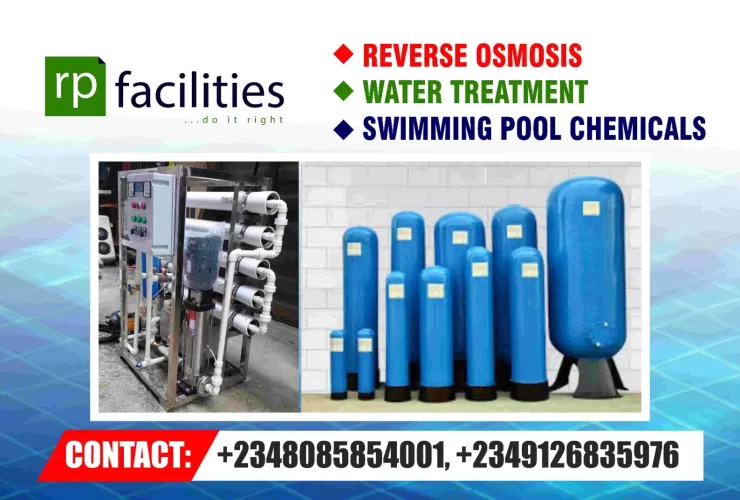What is the Process of Sewage Treatment Plants (STPs)?
In an increasingly urbanized world, effective wastewater management is critical for maintaining public health and protecting the environment. Sewage Treatment Plants (STPs) play a pivotal role in this process, especially in rapidly growing cities like Lagos, Nigeria, where population density and industrial activities put significant pressure on water resources. Understanding the intricate processes within an STP not only highlights the importance of these facilities but also underscores the necessity for continued investment in advanced wastewater treatment technologies.
Step-by-Step Process of Sewage Treatment
The process of sewage treatment involves several key stages, each designed to progressively clean the wastewater to meet environmental and regulatory standards. Here’s a detailed look at each step in the STP process:
- Preliminary Treatment: The first step in the sewage treatment plant (STP) process is preliminary treatment. During this phase, large solids, grit, and debris are removed from the wastewater through screening and grit removal systems. This step is essential because it prevents damage to the mechanical equipment used in later stages and reduces the risk of clogs and inefficiencies. For instance, removing fats, oils, and grease (FOG) at this stage is crucial in areas like Lagos, where improper waste disposal can lead to significant blockages and operational challenges.
- Primary Treatment: After preliminary treatment, the wastewater moves to primary treatment, where it enters sedimentation tanks. In these tanks, the flow of water is slowed to allow heavier solids (known as primary sludge) to settle at the bottom. This process significantly reduces the amount of suspended solids and organic material in the wastewater, making it easier to treat in the following stages. The primary treatment is a critical step in minimizing the load on secondary treatment processes and ensuring that the sewage treatment plant operates efficiently.
- Secondary Treatment: The secondary treatment phase is where the majority of organic matter and pollutants are removed from the wastewater. This is achieved through biological processes, particularly using aerobic biological processes. In this stage, the wastewater is pumped into aeration tanks where it is mixed with air. The introduction of oxygen supports the growth of aerobic bacteria, which consume the remaining organic pollutants. Secondary clarifiers then separate the biomass (bacteria and organic matter) from the treated water. This step is vital for significantly reducing biochemical oxygen demand (BOD) and other pollutants, ensuring that the water is safe for further treatment or discharge.
- Tertiary Treatment: The final stage of the STP process is tertiary treatment, which involves advanced treatment methods to ensure the effluent meets the highest environmental standards. Depending on the specific needs of the region, this stage may include additional filtration, nutrient removal (such as nitrogen and phosphorus), and disinfection processes like chlorination or ultraviolet (UV) treatment. In densely populated cities like Lagos, where water resources are heavily utilized, tertiary treatment is crucial for producing high-quality effluent that can be safely discharged into the environment or even reused for non-potable purposes.
Monitoring and Maintenance of Sewage Treatment Plants
The effectiveness of a sewage treatment plant depends not only on its design and technology but also on rigorous monitoring and maintenance practices. Here’s why these elements are crucial:
- Performance Monitoring: Continuous monitoring of the treatment process is essential to ensure that the STP operates within the required parameters. This involves regular testing of water quality, including parameters like pH, BOD, chemical oxygen demand (COD), and nutrient levels. By keeping a close watch on these factors, plant operators can make timely adjustments to maintain optimal performance and compliance with environmental regulations.
- Maintenance Protocols: Regular maintenance of the equipment and infrastructure within an STP is vital to prevent unexpected breakdowns and ensure long-term reliability. This includes routine inspections, cleaning of tanks and pipelines, calibration of instruments, and servicing of mechanical components. In a bustling city like Lagos, where the demand on wastewater treatment facilities is high, effective maintenance protocols are key to sustaining uninterrupted operations.
- Staff Training: Skilled personnel are at the heart of effective STP operations. Ensuring that staff are well-trained in both the technical aspects of wastewater treatment and in the latest technologies is crucial. Continuous training programs can help staff stay updated on industry best practices, operational safety, and the use of advanced treatment methods. This is particularly important in regions like Lagos, where rapidly changing urban landscapes require adaptive and knowledgeable teams to manage wastewater challenges.
The process of sewage treatment plants is integral to sustainable wastewater management, particularly in rapidly urbanizing areas such as Lagos, Nigeria. Each stage of the treatment process—from preliminary to tertiary treatment—plays a critical role in ensuring that the effluent discharged into the environment meets strict regulatory standards. By understanding these processes, stakeholders can appreciate the importance of investing in modern STP technologies and practices that protect water resources, promote public health, and support sustainable development.
For global readers and especially those based in Lagos, understanding the STP process is not just about environmental stewardship—it’s about ensuring a healthier, more sustainable future for all. Investing in and supporting effective wastewater treatment systems is essential for any city’s long-term resilience and prosperity. If you are looking for expert sewage treatment services in Lagos, RP Facilities Ltd is committed to delivering innovative solutions that meet your needs.



